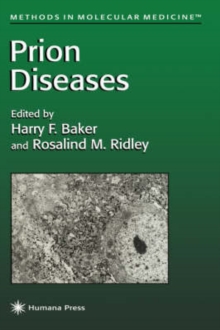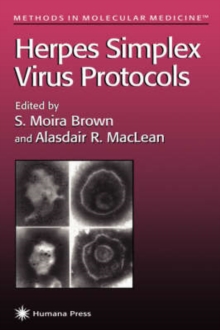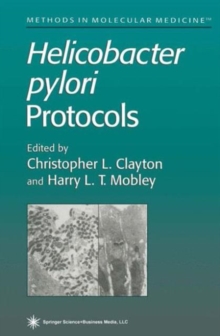
Placenta and Trophoblast : Methods and Protocols, Volume II Hardback
Edited by Michael J. Soares, Joan S. Hunt
Part of the Methods in Molecular Medicine series
Hardback
Description
The aim of the two-volume set of Placenta and Trophoblast: Methods and Protocols is to offer contemporary approaches for studying the biology of the placenta.
The chapters contained herein also address critical features of the female organ within which the embryo is housed, the uterus, and some aspects of the embryo–fetus itself, particularly those of common experimental animal models.
In keeping with the organization used effectively in other volumes in this series, each chapter has a brief introduction followed by a list of required items, protocols, and notes designed to help the reader perform the expe- ments without difficulty.
In both volumes, sources of supplies are given and illustrations highlight particular techniques as well as expected outcomes.
A key aspect of these volumes is that the contributors are at the forefronts of their disciplines, thus ensuring the accuracy and usefulness of the chapters.
Placenta research has progressed rapidly over the past several decades by taking advantage of the technical advances made in other fields.
For example, the reader will note that many techniques, such as reverse transcriptase po- merase chain reaction, northern and western blotting, microarray analyses and in situ hybridization experiments, are routinely used for dissecting a wide range of experimental questions.
Protein analysis and functional experiments on tissues and cells that comprise the maternal–fetal interface benefit from studies in en- crinology, immunology, and developmental biology.
These volumes also present new ideas on investigating gene imprinting and gene transfer via viral vectors.
Information
-
Available to Order - This title is available to order, with delivery expected within 2 weeks
- Format:Hardback
- Pages:452 pages, XXI, 452 p.
- Publisher:Humana Press Inc.
- Publication Date:15/12/2005
- Category:
- ISBN:9781588296085
Information
-
Available to Order - This title is available to order, with delivery expected within 2 weeks
- Format:Hardback
- Pages:452 pages, XXI, 452 p.
- Publisher:Humana Press Inc.
- Publication Date:15/12/2005
- Category:
- ISBN:9781588296085










